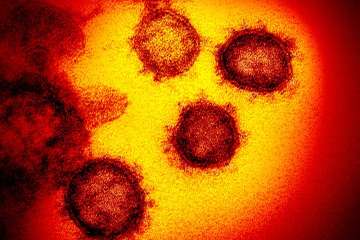No invasive technique be adopted for forensic autopsy in COVID-19 death cases: ICMR
Invasive technique should not be adopted for forensic autopsy in COVID-19 death cases as mortuary staff are exposed to potentially dangerous health risks due to organ fluids and secretions even after taking the highest precautions

Invasive technique should not be adopted for forensic autopsy in COVID-19 death cases as mortuary staff are exposed to potentially dangerous health risks due to organ fluids and secretions even after taking the highest precautions, the ICMR has said. The Indian Council of Medical Research (ICMR), in its 'Standard Guidelines for Medico-legal autopsy in COVID-19 deaths in India', said, "It will prevent the spread of infection to doctors, mortuary staff, police persons and all the people in chain of dead body disposal."
According to the guidelines, the deaths in hospital and under medical care due to coronavirus infection is a non-MLC case and doesn't require postmortem examination and the required certification of death will be done by treating doctors.
Bodies of suspected COVID-19 patients, which are brought to hospital, may be labelled as medico legal cases by the doctor in emergency and it will be sent to mortuary and police will be informed, which may necessitate a medicolegal autopsy for clarity in the cause of death. "The forensic autopsy of these cases may be waived off," the guidelines said.
In some homicidal, accidental or suicidal death cases, the deceased may be COVID-19 confirmed or suspected. If the patient dies in hospital, the clinical records and all other relevant documents may be sent along with the body for forensic autopsy.
After the inquest procedure, if any crime is not suspected, police have the authority to waive off conduction of medico-legal autopsy, even though labelled as medico-legal case.
"The investigating police officer must proactively take steps to waive off unnecessary autopsies during such pandemic situation," the guidelines said.
As per the procedure of conducting forensic autopsy, "...along with external examination, multiple photographs and verbal autopsy (as depicted by WHO)...post-mortem should be conducted strictly avoiding any invasive surgical procedures and avoiding splashing of body fluids contact for staffs, body handlers and doctors conducting post-mortem."
According to the guidelines, if COVID-19 test report is awaited, the body must not be released from a mortuary until the final report is received and after the formalities, it must be handed over to the district administration.
"At no time, more than two relatives must be present near the body and they must maintain a distance of at least one meter from the body. The body must be identified through the plastic bag, without opening the bag, and it must be done in the presence of law enforcing agencies," it said.
"The body must be taken to the burial/cremation ground in presence of law enforcing agencies, where not more than five relatives of the deceased should be allowed," it said.
These guidelines are based on the current understanding about modes of transmission of COVID-19 sensitivity of the diagnostic tests, international autopsy guidelines and knowledge about infrastructure and logistic strength of common mortuaries in India, the document stated. Complete personal protective equipment (PPE) has to be used while shifting the body in the mortuary if it involves direct handling of the body by the staff.
The body should be packed in a double packing in a leak-proof zipped transparent plastic body bag, which is locked properly to avoid spillage of any fluids. The existing mortuary facility for body storage should be strictly divided into COVID-19 and non-COVID-19 bodies. Incase of burial, upper surface should be cemented and earmarked.
The body must be cremated in electric crematorium, wherever possible, so that the movement and handling of the body is minimised, the guidelines stated. Religious rituals, which require touching the bodies, should be avoided like bathing, kissing and hugging of the dead bodies, the document said, adding that the ash does not pose any risk and can be collected to perform the last rites.
The document lists a series of FAQs like over how many days is the infectivity period of COVID-19 from a dead body, in response to which the ICMR said the coronavirus infection is a respiratory infection and mainly spread through aerosols.
"As per the available scientific literature till now, the survival of virus gradually decreases with time in a dead body but there is no specific time limit after to declare the body non-infective. So, it is advisable to adopt the necessary precautions while handling the body and non-invasive autopsy technique," it said.
As for the protocol to do autopsy in a COVID-19 suspected dead body with negative RT-PCR result, the apex health research body said, "Considering the relatively high rate of false negative results of COVID-19 RT-PCR, every case still has to be considered as a possible COVID-19 case. "Thus, it is advisable to follow non-invasive autopsy in these cases throughout the duration of pandemic," it said.